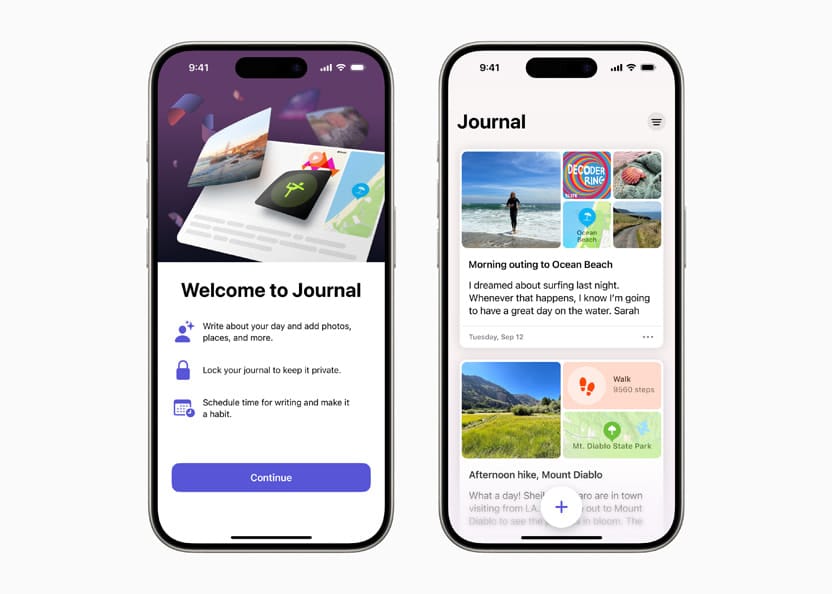Apple’s Journal App: A Step Towards Personalized Life Chronicles with Room for Growth
Apple's latest foray - the Journal app - marks a significant step, albeit an elementary one, in the journey towards a more integrated and reflective digital experience. This initial iteration presents a fascinating, if not slightly unnerving, concept: utilizing the wealth of data on our phones to aid in chronicling our lives.

At first glance, the app's simplicity is almost misleading. A single screen displaying a reverse-chronological timeline of entries, accentuated by a prominent plus button, encapsulates its entirety. The user experience is straightforward - create a new entry or engage with reflective prompts to evoke more profound thoughts.
The app’s core functionality - adding photos, videos, voice memos, and locations to entries - is somewhat rudimentary. Its filtering options and daily journaling reminders feel like foundational features rather than innovative strides. In essence, Apple’s Journal app, which was introduced in iOS 17.2, is, at its heart, a basic journaling tool.
However, the real intrigue lies in what Apple labels “Moments” - a concept that leverages the unique data accessible to our phones. By analyzing various signals like location, communication patterns, and media consumption, the app aims to recognize significant moments worthy of reflection and documentation.
This idea of an automated suggestion system to aid journaling is groundbreaking, yet its execution and implications remain shrouded in mystery and potential concerns.
WTF?
Apple's approach, while novel, is not without its pitfalls. The reliance on an algorithm to curate personal memories can inadvertently resurface unwelcome or distressing memories, a challenge previously observed in similar features from other platforms. The balance between automation and emotional sensitivity is a delicate one, necessitating more nuanced control mechanisms than the current binary options available to users.
Despite these concerns, the potential for such technology is undeniable. Integrating Apple's suggestion API with third-party apps opens up a realm of possibilities for personalized journaling experiences. Yet, this technology’s exact mechanics and ethical considerations are still unfolding, leaving users and developers alike in a state of anticipation and speculation.
Additionally, the app's integration with the iPhone’s share sheet, allowing for the inclusion of external content, hints at a broader vision. The ability to embed links and media directly into journal entries offers a glimpse into a more interconnected and rich digital journaling experience. However, the execution of these features currently falls short of their potential, underscoring the app's status as a work in progress.
In my personal use, the Journal app has become a repository for reflections on random content consumption throughout the day. For example, I plan to share my quick musings on movies watched, books read, and shared memes. The prospect of revisiting these musings, enriched with contextual data like location, interactions, and health metrics, is enticing. Such features could revolutionize how we perceive and record our interactions with digital content over time.
Nonetheless, while Apple’s Journal app stands as a testament to the company’s commitment to health and wellness, it also represents the infancy of a much larger vision that seeks to seamlessly blend our digital interactions with our personal narratives.
The app's current iteration, basic though it may be, is a stepping stone towards a future where our digital devices don't just record our lives but also help us understand and reflect upon them meaningfully. As Apple navigates the complexities of this technology, it will be fascinating to witness the evolution of the Journal app into a tool that stores memories and enriches our understanding of the tapestry of our lives.

Member discussion